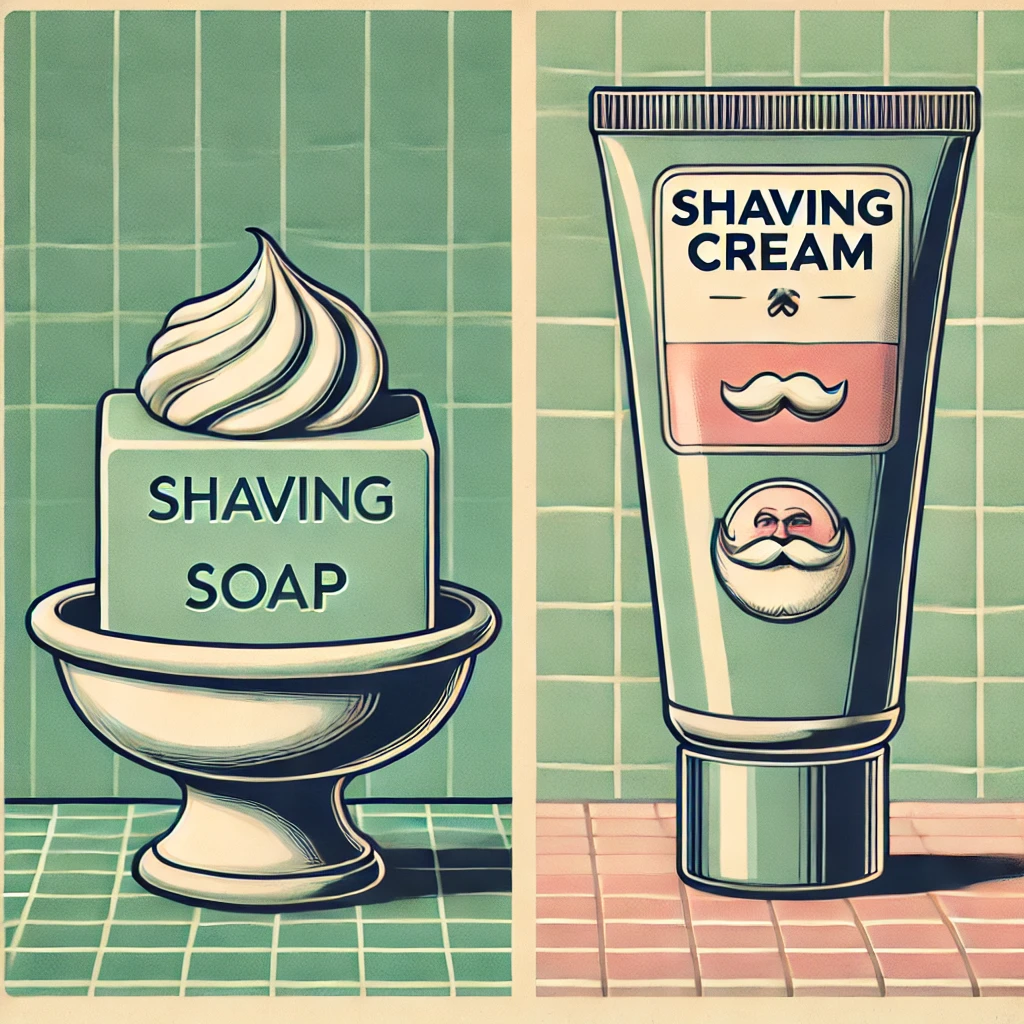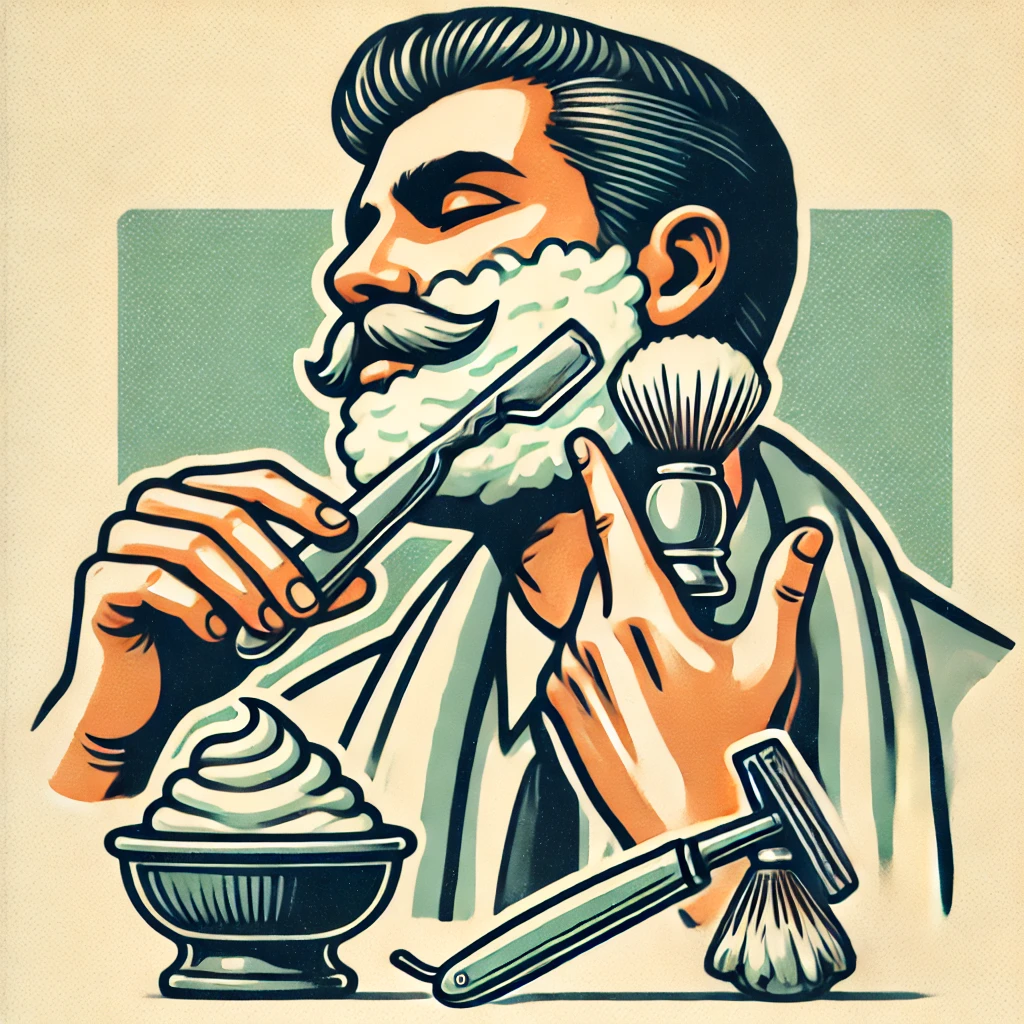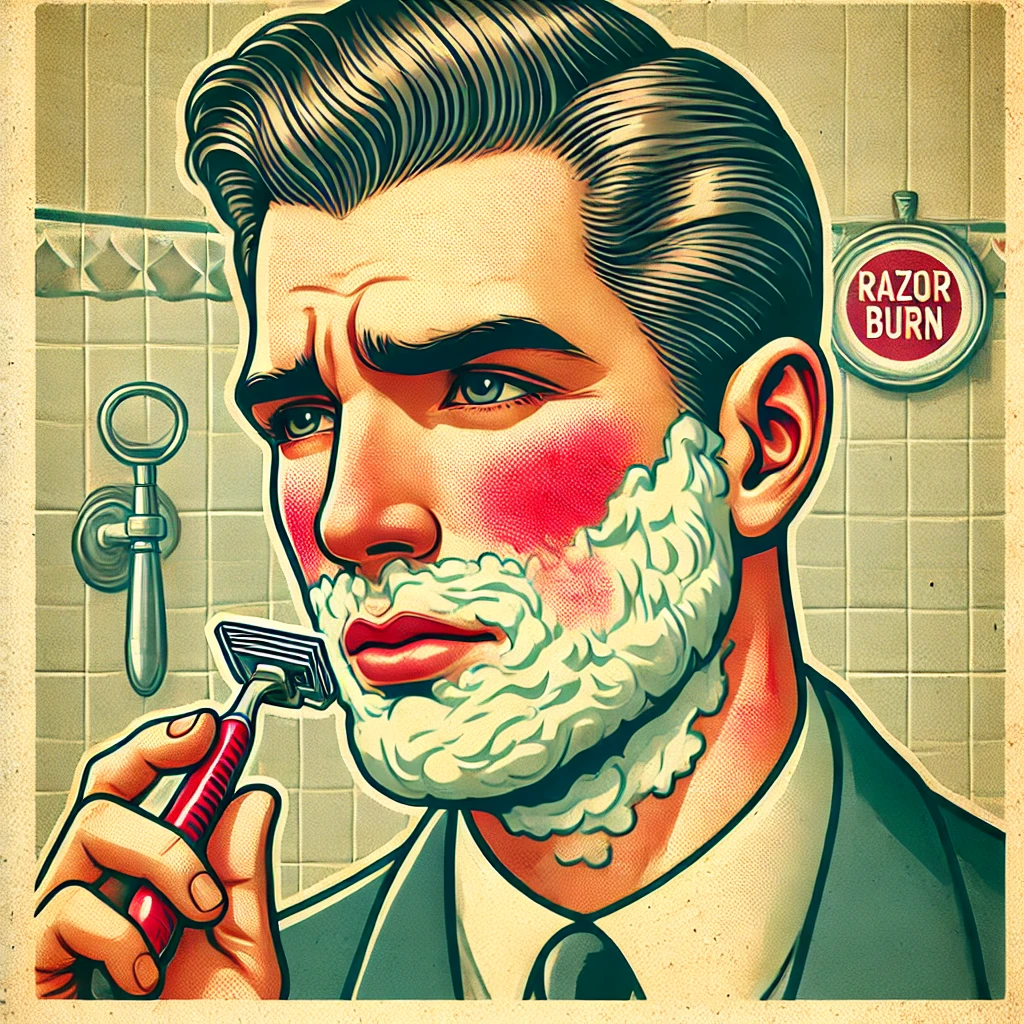Shaving is a daily ritual for many men, but for those with sensitive skin, it can be a challenging experience. The products you choose can make all the difference in preventing irritation, razor burn, or dryness. Among the most crucial choices is whether to use shaving soap or shaving cream, particularly when you have sensitive skin. In this article, we will explore the differences between shaving soap and cream, and determine which is best for sensitive skin.
Understanding Shaving Soap and Shaving Cream
Before comparing shaving soap and shaving cream for sensitive skin, it’s important to understand what each product is and how it works. Both serve the same basic function: to lubricate the skin and soften the hair for a smoother shave. However, they differ in ingredients, application, and overall performance.
What is Shaving Soap?
Shaving soap is a traditional product that has been around for centuries. It typically comes in a solid puck or bar form and is used with a shaving brush. When the brush is dipped in water and swirled over the soap, it creates a rich lather that is applied to the face. Shaving soaps are known for their long-lasting properties and the dense lather they produce, which offers good protection for the skin during shaving.
What is Shaving Cream?
Shaving cream, on the other hand, is a more modern product and usually comes in a tube or tub. Unlike shaving soap, it doesn’t require a brush to create a lather, although many traditional wet shavers still use one. Shaving cream tends to be more convenient and faster to use than shaving soap, and it produces a thick, creamy lather that is easily applied to the skin.
Key Differences Between Shaving Soap and Shaving Cream
To help you decide between shaving soap and cream for sensitive skin, let’s look at some key factors:
1. Ingredients
When it comes to sensitive skin, the ingredients in your shaving product matter greatly.
- Shaving Soap: Shaving soaps are typically made with a blend of oils, fats (either animal or vegetable), and alkalis, such as potassium hydroxide or sodium hydroxide. Traditional shaving soaps are often free from artificial fragrances and chemicals, making them a good option for those with sensitive skin. However, some shaving soaps may contain essential oils or strong fragrances that can irritate sensitive skin, so it’s important to choose a mild, unscented option if you are prone to irritation.
- Shaving Cream: Shaving creams usually contain a higher concentration of water and are infused with more moisturizing ingredients, such as glycerin or aloe vera, which can help soothe sensitive skin. Some shaving creams also include alcohol or synthetic fragrances, which can be drying or irritating. Look for alcohol-free, fragrance-free shaving creams that are specifically labeled as suitable for sensitive skin to avoid irritation.
2. Lather and Application
The texture and quality of the lather can also impact the shave, especially for sensitive skin.
- Shaving Soap: Shaving soaps require more effort to create a lather, as they need to be used with a brush and water. The lather from shaving soap tends to be more dense and slick, which can provide a protective barrier against the razor. However, this denser lather can sometimes dry out more quickly, potentially leading to irritation if your skin is already sensitive.
- Shaving Cream: Shaving creams are easier and quicker to lather, often requiring no brush or just a small amount of water. They create a thick, creamy, and highly moisturizing lather that is ideal for sensitive skin. The added moisture helps keep the skin hydrated throughout the shave, reducing the risk of razor burn and irritation.
3. Moisturizing Properties
Hydration is key when shaving sensitive skin. Dry skin is more prone to irritation, razor burn, and cuts.
- Shaving Soap: Some shaving soaps offer excellent moisturizing properties, especially those containing ingredients like shea butter, coconut oil, or glycerin. However, traditional hard soaps tend to be less moisturizing than creams, so those with very sensitive or dry skin may find that some soaps leave their skin feeling tight or dry after shaving.
- Shaving Cream: Shaving creams are often more hydrating due to their higher water content and the inclusion of emollients. Many shaving creams for sensitive skin are specifically formulated to provide maximum hydration, making them a better choice for those prone to dryness and irritation.
Benefits of Shaving Soap for Sensitive Skin
While shaving creams are often considered the better option for sensitive skin, shaving soap has its own unique benefits.
a. Long-Lasting and Economical
Shaving soaps generally last much longer than shaving creams. A single puck of shaving soap can last for months, making it a more economical option. If you shave regularly and want a cost-effective product that provides a good barrier for sensitive skin, shaving soap may be the right choice.
b. Natural Ingredients
Many traditional shaving soaps are made with fewer synthetic ingredients, which can be beneficial for those with sensitive skin. Look for natural or organic shaving soaps that are free from parabens, sulfates, and artificial fragrances to minimize the risk of irritation.
c. Closer Shave
Shaving soaps typically create a very slick lather, allowing the razor to glide effortlessly across the skin. This can result in a closer shave, which may reduce the need for multiple passes with the razor—one of the main causes of razor burn and irritation.
Benefits of Shaving Cream for Sensitive Skin
Shaving creams are often recommended for individuals with sensitive skin for a number of reasons:
a. Convenience and Ease of Use
Shaving creams are much quicker and easier to use than shaving soaps. They don’t require a brush or as much time to build up a lather. This can be particularly helpful if you’re looking for a fast shave that’s still gentle on your skin.
b. Superior Hydration
For those with sensitive or dry skin, shaving creams provide superior moisture. The rich, creamy lather hydrates the skin throughout the shave and leaves the face feeling smooth and moisturized afterward. Many shaving creams designed for sensitive skin include ingredients like aloe vera, chamomile, and other calming agents that help soothe irritation.
c. Less Risk of Drying Out the Skin
Shaving creams, with their higher moisture content, are less likely to dry out the skin than traditional hard soaps. This makes them ideal for sensitive skin types, especially in colder climates or dry environments where the skin is already prone to dehydration.
Shaving Soap vs Cream: Which is Better for Sensitive Skin?
The choice between shaving soap and shaving cream largely depends on your personal preference and specific skin needs. For sensitive skin, shaving cream is often the better option due to its ease of use, superior moisturizing properties, and gentle ingredients. Shaving creams specifically formulated for sensitive skin can provide the hydration and protection you need to prevent irritation.
However, if you prefer a traditional shaving experience and are willing to spend a bit more time lathering, a high-quality, unscented shaving soap made with natural ingredients can also be an excellent choice for sensitive skin.
Conclusion
When comparing shaving soap vs cream for sensitive skin, both products have their merits. Shaving creams tend to offer better hydration and are more convenient for those with sensitive skin, while shaving soaps can provide a close, long-lasting shave if chosen carefully. Ultimately, the best product is one that suits your skin’s specific needs. Whether you opt for soap or cream, always prioritize gentle, moisturizing ingredients to keep your sensitive skin irritation-free.


